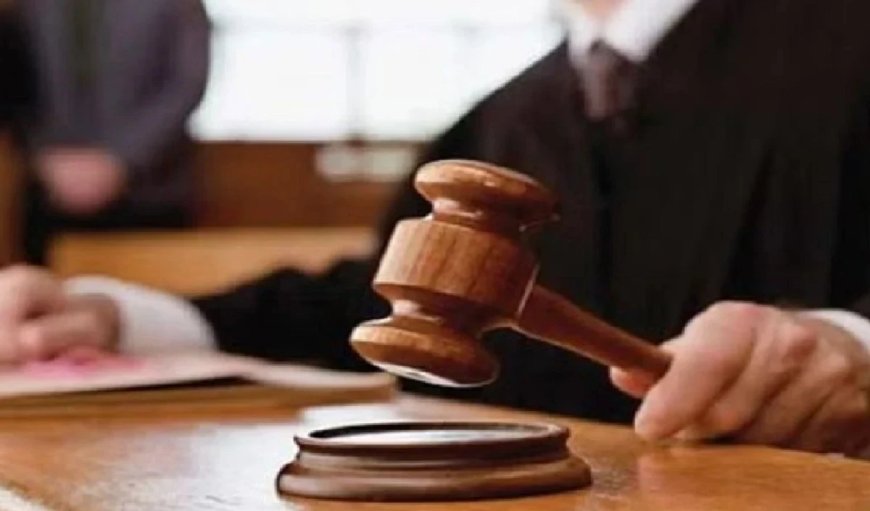भारतीय न्यायपालिका की स्वतंत्रता का बेजा इस्तेमाल के लिए दोषी कौन?
भारतीय लोकतंत्र में न्यायपालिका की स्वतंत्रता अक्षुण्ण रखने के लिए जजों का स्वतंत्र रहना बहुत जरूरी है। लेकिन प्रतिष्ठित पदों पर रहते हुए कतिपय जजों ने जो कुछ कारनामें किए हैं, उसके दृष्टिगत न्यायपालिका में मूलभूत बदलाव नहीं करना जनतंत्र के लिए भी अहितकर साबित हो रहा है। इसलिए यक्ष प्रश्न है कि भारत में न्यायपालिका की स्वतंत्रता का बेजा इस्तेमाल के लिए आखिर में दोषी कौन है? और उसके खिलाफ त्वरित कार्रवाई करने, करवाने में न्यायिक प्रशासन या फिर कार्यपालक प्रशासन के हाथपांव क्यों फूलने लगते हैं? यदि पुरानी बातें छोड़ भी दें तो जस्टिस जे एस वर्मा के खिलाफ जितनी मंथर गति से कार्रवाई चल रही है, वह पूरी संवैधानिक व्यवस्था के लिए गम्भीर चिंता की बात है। इससे भ्रष्टाचार के संलिप्त लोगों को बढ़ावा मिलेगा।सुलगता सवाल है कि किसी भी मामले में जितनी ततपरता पूर्वक आम आदमी के खिलाफ कार्रवाई होती है, उतनी ही ततपरतापूर्वक कार्रवाई किसी खास आदमी के खिलाफ आखिर क्यों नहीं दिखाई देती है? क्या चोर-चोर मौसेरे भाई वाली कहावत यहां भी चरितार्थ होती है? आखिर हमारी संसद इन विषयों पर स्पष्ट और पारदर्शी कानून क्यों नहीं बनाती है? हमारे देश में संसद सर्वोच्च है या सुप्रीम कोर्ट, यह विषय महत्वपूर्ण नहीं है, बल्कि यह चर्चा समीचीन है कि विधायिका या न्यायपालिका में महत्वपूर्ण पदों पर आसीन भ्रष्ट आचरण वाले व्यक्तियों के खिलाफ आम आदमी की तरह नहीं बल्कि खास आदमी की तरह विलंबित कार्रवाई आखिर क्यों होनी चाहिए? चूंकि विधायिका और न्यायपालिका दोनों ने अपनी सर्वोच्च स्थिति का दुरूपयोग किया है, इसलिए लोकहित या व्यवस्था हित वाले रेयर ऑफ द रेयररेस्ट मामलों में विद्वत परिषद या जनमत सर्वेक्षण के माध्यम से किसी अंतिम निर्णय पर पहुंचने की वैधानिक व्यवस्था होनी चाहिए।इस लिहाज से सर्वोच्च न्यायालय के मुख्य न्यायाधीश जस्टिस बी आर गवई ने मुख्य न्यायाधीश ग्रेट ब्रिटेन में वहां के सुप्रीम कोर्ट द्वारा आयोजित एक गोलमेज सम्मेलन में 'न्यायिक वैधता और सार्वजनिक विश्वास बनाए रखने के' विषय पर जो बातें कही हैं, उनपर गौर फरमाना हर प्रबुद्ध व्यक्ति के लिए लाजिमी है। उन्होंने दो टूक शब्दों में कहा है कि ज्यूडिशियरी में करप्शन और मिसकण्डक्ट से न्यायपालिका पर लोगों का भरोसा कम होता है। इसलिए उन्होंने इस बात पर जोर दिया कि ज्यूडिशियरी को केवल न्याय नहीं करना है, बल्कि उसे एक संस्थान के रूप में भी देखा जाना चाहिए जो सत्ता से सच कहने की क्षमता रखता है।कहना न होगा कि जहां एक ओर भारतीय लोकतंत्र को मजबूत बनाने में न्यायपालिका का महत्वपूर्ण स्थान है, वहीं दूसरी ओर लोकतंत्र की जड़ों को खोखली करने में भी न्यायपालिका की प्रत्यक्ष/परोक्ष भूमिका से इंकार नहीं किया जा सकता है। यह बात मैं नहीं कह रहा हूँ बल्कि इस देश में चल रहे विभिन्न न्यायिक घटनाक्रमों का सार-सत्य कुछ ऐसा ही है, जो चिंताजनक बात है।देखा जाए तो सर्वोच्च न्यायालय के मुख्य न्यायाधीश न्यायमूर्ति बी आर गवई ने अपने लहजे में न्यायपालिका की बड़ाई और शिकायत दोनों करते हुए परोक्ष रूप से न्यायाधीशों, नौकरशाहों व राजनेताओं के लिए कुछ लक्ष्मण रेखा खींचने की कोशिश करते हुए उन्हें कतिपय नसीहतें भी दी हैं, जिन्हें समझे जाने और उसके दृष्टिगत सर्वश्रेष्ठ समाधान निकाले जाने की जरूरत है।भारत के मुख्य न्यायाधीश बीआर गवई ने जजों की नियुक्ति पर महत्वपूर्ण टिप्पणी करते हुए कहा है कि सरकार ने दो बार सबसे वरिष्ठ न्यायाधीशों को नजरअंदाज किया क्योंकि उस समय अंतिम निर्णय सरकार का था। यही वजह है कि भारत के मुख्य न्यायाधीश ने न्यायिक नियुक्तियों में कार्यपालिका की भूमिका पर सवाल उठाते हुए राष्ट्रीय न्यायिक नियुक्ति आयोग अधिनियम को न्यायपालिका की स्वतंत्रता के लिए खतरा बताया और कहा कि इससे जजों की स्वतंत्रता पर आंच आ सकती है।दरअसल, उक्त गोलमेज सम्मेलन में जस्टिस विक्रम नाथ, इंग्लैंड और वेल्स की लेडी चीफ जस्टिस बैरोनेस कैर और यूके के सुप्रीम कोर्ट के जज जॉर्ज लेगट की मौजूदगी में भारत के मुख्य न्यायाधीश न्यायमूर्ति गवई ने कहा कि, 'भारत में, न्यायपालिका व कार्यपालिका के बीच विवाद का एक मुख्य मुद्दा यह रहा है कि न्यायिक नियुक्तियों में प्राथमिकता किसकी है? उन्होंने कहा कि 1993 तक, सुप्रीम कोर्ट और हाई कोर्ट में जजों की नियुक्ति में अंतिम निर्णय कार्यपालिका का होता था। यही वजह है कि उक्त अवधि के दौरान, भारत के मुख्य न्यायाधीश की नियुक्ति में कार्यपालिका ने दो बार जजों के फैसले को अनदेखा किया, जो स्थापित परंपरा के विरुद्ध था।'उल्लेखनीय है कि सीजेआई पद के लिए जिन दो जजों को दरकिनार किया गया है, वे हैं जस्टिस सैयद जाफर इमाम और जस्टिस हंस राज खन्ना। जहां जस्टिस इमाम को 1964 में शीर्ष पद नहीं सौंपा जा सका था क्योंकि वे स्वास्थ्य संबंधी समस्याओं से पीड़ित थे और तत्कालीन जवाहरलाल नेहरू सरकार ने जस्टिस पीबी गजेंद्रगढ़कर को यह पद सौंपा था। वहीं, न्यायमूर्ति खन्ना को 1977 में इंदिरा गांधी सरकार की नाराजगी का सामना करना पड़ा था। क्योंकि जब एडीएम जबलपुर बनाम शिव कांत शुक्ला मामले में उनके असहमति वाले फैसले के कुछ महीनों बाद ही उन्हें चीफ जस्टिस का पद खोना पड़ा था। क्योंकि उस मामले में उन्होंने फैसला सुनाया था कि राष्ट्रीय आपातकाल के दौरान भी मौलिक अधिकारों को निलंबित नहीं किया जा सकता है। यही बात इंदिरा गांधी सरकार को नागवार गुजरी थी।सीजेआई के मुताबिक, इसके जवाब में सुप्रीम कोर्ट ने साल 1993 और 1998 के अपने फैसलों में जजों की नियुक्ति से संबंधित संवैधानिक प्रावधानों की व्याख्या की और स्थापित किया कि भारत के चीफ जस्टिस, चार सीनियर जजों के साथ मिलकर एक कॉलेजियम का गठन करेंगे, जो सुप्रीम कोर्ट में नियुक्तियों की सिफारिश करने के लिए जिम्मेदार होगा। मुख्य न्यायाधीश न्यायमूर्ति गवई ने आगे कहा कि सुप्रीम कोर्ट ने 2015 में राष्ट्रीय न्यायिक नियुक्ति आयोग अधिनियम को रद्द कर दिया था।

भारतीय न्यायपालिका की स्वतंत्रता का बेजा इस्तेमाल के लिए दोषी कौन?
Breaking News, Daily Updates & Exclusive Stories - haqiqatkyahai
In the realm of Indian democracy, the independence of the judiciary is paramount. It is essential for judges to remain autonomous to uphold justice and maintain the integrity of the legal system. However, various judges have recently faced scrutiny for their actions while in esteemed positions, prompting concerns regarding the fundamental workings of our judiciary. The burning question arises: who is ultimately responsible for the misuse of judicial independence in India? Moreover, why does the judiciary or the executive seem hesitant to take immediate action against wrongdoing?
Judicial Accountability and Public Trust
The current scenario reveals that the same vigilance pursued against ordinary citizens in legal matters does not seem to be reciprocated when dealing with powerful individuals. This inconsistency raises significant concerns about judicial accountability. Chief Justice B.R. Gavai highlighted these issues in a recent roundtable discussion held in Great Britain, stressing that corruption and misconduct undermine public trust in the judiciary. He emphasized that judicial bodies must not only deliver justice but also serve as institutions capable of speaking truth to power.
This begs the question: why does the legislative assembly fail to create clear and transparent laws regarding judicial conduct? The debate surrounding the supremacy of Parliament versus the Supreme Court, although significant, diverges from the critical issue of delayed actions against corrupt officials holding influential positions.
Historical Context and Repercussions
Historical precedents reveal a pattern wherein high-profile judges have faced political backlash leading to obstructions in their appointments, reflecting poorly on the judicial appointment process. Justice B.R. Gavai noted instances in his commentary, referring to notable judges who were overlooked due to political motivations—an alarming trend that continues to impact India's legal framework.
This further complicates the ongoing discussion about the National Judicial Appointments Commission (NJAC), which Gavai deemed a threat to judicial independence. The NJAC was designed to increase transparency in the appointment process but has faced criticism for potentially usurping the power of the judiciary.
Corruption in the Legal System
One cannot ignore the troubling reality of institutional corruption within the legal framework of India. Judicial officers, lawyers, and bureaucrats are often implicated in corrupt practices, undermining the credibility of the legal system. The relationship between the executive and judiciary becomes precarious, creating an environment where serious allegations are treated with leniency against influential individuals.
Justice Gavai suggested invoking public engagement via consensus or referendum to address controversial legal matters effectively. Such measures could potentially restore faith in the system, especially in cases deemed to be in the realm of public interest.
Path Forward
Moving ahead, it is vital for the Chief Justice to call for the establishment of a dedicated investigative body to oversee judicial malpractices. Such a body could enforce accountability and promote a culture of integrity within the judiciary. It is essential to confront the entrenched issues of corruption that have plagued our courts and legal institutions.
The prevailing sentiment that judicial autonomy is being compromised must be addressed decisively. Judges need to commit to ethical standards and resist any political inclinations that may cloud their judgment. Only then can the judiciary reaffirm its role as a cornerstone of Indian democracy, devoid of prejudice and bias.
In conclusion, the time has come for a fundamental re-evaluation of how power dynamics affect our judiciary. It is vital for the legal system to operate independently while instilling public confidence and accountability. The responsibility for upholding this balance lies with all stakeholders within the system, including the judiciary, executive, and public.
For more updates, visit haqiqatkyahai.
Keywords:
judicial independence, Indian judiciary, judicial accountability, Chief Justice B.R. Gavai, corruption in legal system, National Judicial Appointments Commission, Supreme Court India, judicial misconduct, public trust in judiciaryWhat's Your Reaction?












































